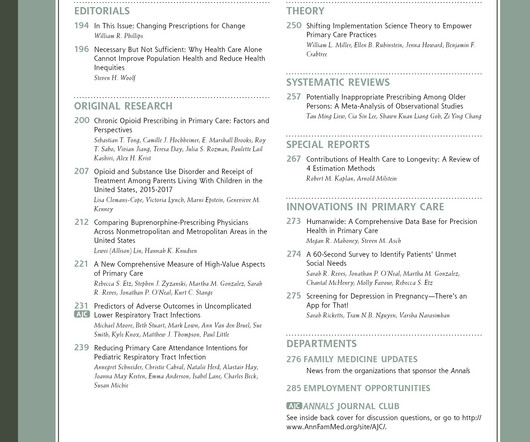Clinician perception of the relationship between mental health, health-related social needs, and diabetes outcomes [Diabetes and endocrine disease]
Annals of Family Medicine
NOVEMBER 20, 2024
Context: Health-promoting behaviors are crucial for good outcomes in diabetes. However, mental health conditions and health-related social needs (HRSNs) can complicate patients’ success. Setting or Dataset: Interviews with 21 primary care clinicians in Colorado who treat patients with diabetes.












Let's personalize your content